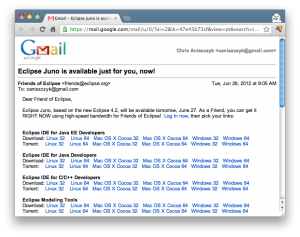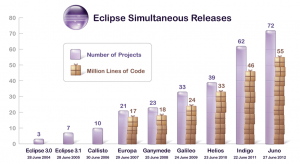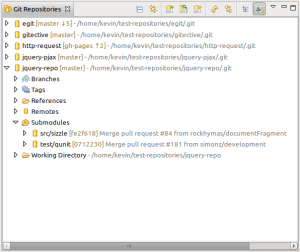Last week, I read an article entitled, “The personal computer is dead” by Jonathan Zitttrain.

The basic premise of the article is that there’s an unprecedented shift of power from end users and software developers to operating system vendors on the other. If you’re a software developer, this shouldn’t be a surprise since if you have been developing mobile applications, you should have noticed the walled gardens popping up around you. To distribute applications, you have to go through a vendor like Apple and use their App Store… each individual application has to be vetted and meet a set of standards that isn’t fully transparent. Your application gets a distribution channel and Apple gets to take a cut of your profits. This model was extremely successful for Apple and has now “boomeranged back to the PC.”
There’s now an App Store for the Mac to match that of the iPhone and it carries the same restrictions essentially. I’m almost 100% sure that Microsoft will replicate this model in their next operating system. As the article states, “today’s developers are writing code with the notion not just of consumer acceptance, but also vendor acceptance.”
I theorize that these typed of wall gardens will slowly start taking advantage of what is going on in the development tooling space. With the advent and eventual maturity of online development tools (see Ace or Eclipse Orion), I envision companies forcing you to write software with tools hosted on their server and then finding a way to “tax” you for the usage. Imagine Google Chrome becoming the worlds most popular browser. Google starts integrating “apps” more prominently in their browser and the way the apps are written are fully online using their web-based tool-chain. To get an app in the browser, you have to go through some control point Google sets up.
Imagine writing software for say the blackfin processor, fully hosted on their infrastructure since that’s the way Analog Devices likes it. The company gets a new control point and potentially another revenue stream. In the end, the tools may even be more convenient for developers but what path are we heading down…?
I’m not sure if the trend is good or bad yet, but there’s definitely a shift of power from end users and software developers to vendors. I feel there’s a definitive trend in the software industry to build walled gardens. Will we start losing the power to tinker and use our own tools to do development? Will I start having nightmares that involve RMS screaming at me (while wearing some crazy costume) about free software and saying he was correct all along?

To end my diatribe, here’s a final quote from the article to mull over, “… if we allow ourselves to be lulled into satisfaction with walled gardens, we’ll miss out on innovations to which the gardeners object, and we’ll set ourselves up for censorship of code and content that was previously impossible. We need some angry nerds.”
Maybe I should have had more coffee this morning, thoughts?







